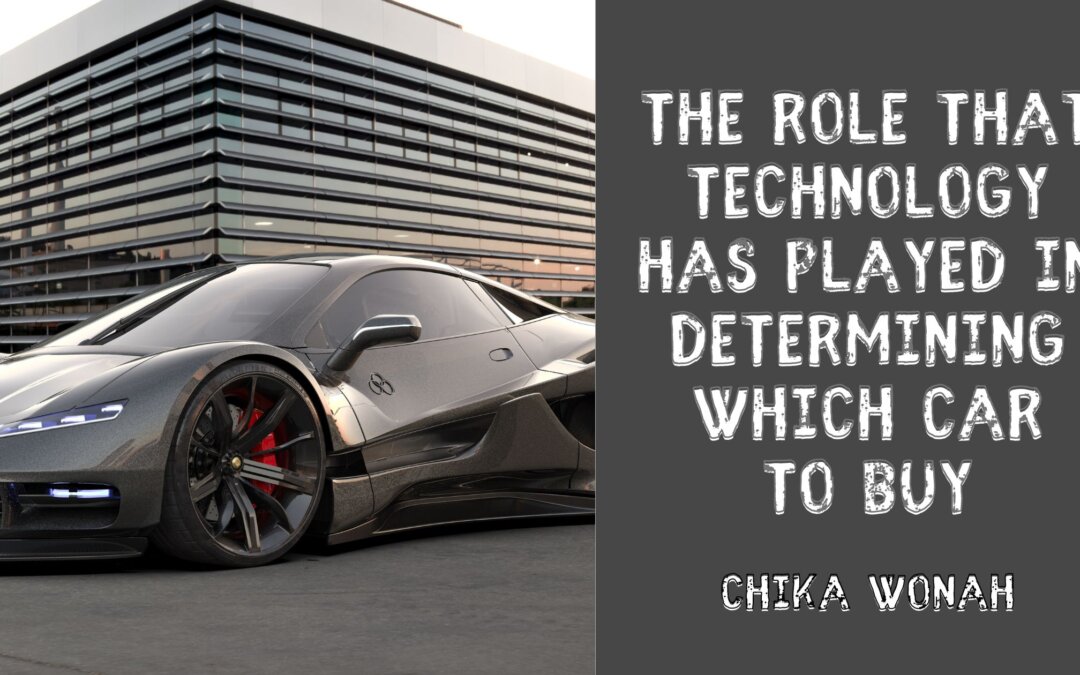The process of buying a car has been profoundly transformed by technology. Gone are the days when purchasing a vehicle was solely about its make, model, and physical attributes. Today, technology is pivotal in influencing buyer decisions and redefining automotive industry standards. The digital age has revolutionized how consumers choose their cars, from advanced research tools to vehicle technology features.
Historically, car buying decisions were influenced by factors such as brand loyalty, design preferences, and the physical experience of test drives. However, the digital revolution has introduced a new era in the automotive industry. The Internet has become a central hub for car research, providing abundant information and tools for consumers.
Simultaneously, there has been a significant evolution in-car technology. Modern vehicles have advanced safety features, infotainment systems, and eco-friendly technologies, making the technological aspect a crucial consideration. This shift reflects broader trends in consumer behavior, where convenience, safety, and environmental impact are increasingly prioritized.
The rise of electric vehicles and hybrids has introduced a new dimension to the decision-making process. Buyers now consider not just the car’s appearance and performance but also its technological footprint and compatibility with sustainable practices. This shift indicates a more informed and technology-oriented consumer base in the automotive market.
Online Research and Comparison Tools
Online research tools have dramatically changed how consumers decide which car to buy. Websites and apps provide detailed information on every make and model available, including pricing, specifications, and reviews. This wealth of information empowers consumers to make informed decisions without even setting foot in a dealership.
Comparison tools have further simplified the decision-making process. Prospective buyers can easily compare multiple vehicles, evaluating fuel efficiency, horsepower, pricing, and features. This level of accessibility and convenience has democratized car buying, allowing consumers to conduct thorough research at their own pace and on their own terms.
Moreover, online platforms have integrated virtual and augmented reality technologies, enabling users to experience a car’s interior and exterior in a virtual space. This immersive experience provides a closer look at the vehicle’s features and design, adding another layer to the research process. Digital research tools have thus become indispensable in the modern car-buying journey, significantly influencing consumer choices.
In-Car Technology Features
The technology housed within the car has become a major deciding factor for buyers. Modern vehicles boast various technological features, from advanced safety systems like blind-spot monitoring and automatic emergency braking to infotainment systems with smartphone integration and voice command capabilities.
Safety features, in particular, have become a top priority for many buyers. Adaptive cruise control, lane-keeping assistance, and collision detection enhance safety and provide a more comfortable and stress-free driving experience. For families and safety-conscious buyers, these features can be the deciding factor in their purchase.
Infotainment systems have also evolved, becoming central to the driving experience. The integration of Apple CarPlay, Android Auto, and proprietary systems provides drivers seamless access to navigation, music, and smartphone apps. The convenience and connectivity offered by these systems appeal to tech-savvy consumers and those who spend significant time in their vehicles.
Additionally, luxury vehicles incorporate high-tech amenities like gesture control, heads-up displays, and advanced climate control systems, further elevating the in-car experience. As such, in-car technology features are crucial in differentiating vehicles and swaying buyer decisions.
Environmental Technology in Vehicles
Environmental technology in vehicles, particularly electric and hybrid cars, has become a significant factor in buying decisions. With growing environmental concerns and advancements in green technology, more consumers are considering the ecological impact of their vehicles.
Electric vehicles offer a zero-emission alternative to traditional combustion engines, attracting environmentally conscious buyers. The improved range and performance of modern EVs and expanding charging infrastructure have made them a practical choice for many. Similarly, hybrid vehicles, which combine gasoline engines with electric motors, offer improved fuel efficiency and lower emissions, appealing to those seeking a balance between traditional and electric cars.
Government incentives and rebates for eco-friendly vehicles have also influenced buyer choices. Many regions offer financial incentives for purchasing EVs or hybrids, making them more financially accessible.

